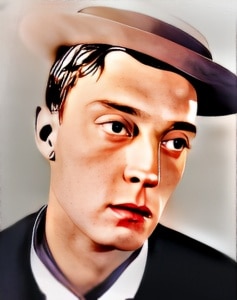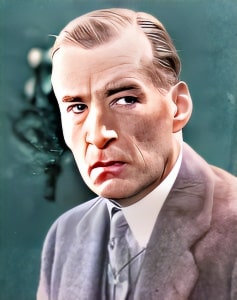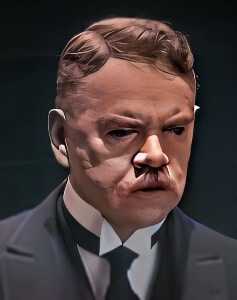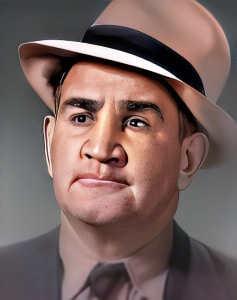 Buster Keaton, born Joseph Frank Keaton on October 4, 1895, in Piqua, Kansas, was one of the most iconic and influential figures in the history of silent cinema.
Buster Keaton, born Joseph Frank Keaton on October 4, 1895, in Piqua, Kansas, was one of the most iconic and influential figures in the history of silent cinema.
Known for his deadpan expression and incredible physical comedy, he earned the nickname “The Great Stone Face” for his unflinching demeanor, even in the most chaotic and dangerous on-screen situations. Keaton’s career spanned the early days of Hollywood, and his contributions to the world of film continue to be celebrated and revered.
Keaton’s introduction to show business was early and unconventional. His parents were part of a vaudeville act, and he was literally thrown into the world of entertainment as a young child when his father playfully hurled him across the stage. This experience would set the stage for his future career as a physical comedian.
In the 1920s, Keaton’s career in silent film took off. He signed with the famous studio Metro-Goldwyn-Mayer (MGM) and began creating the films for which he is best known. His films, such as “The General” (1926) and “Steamboat Bill, Jr.” (1928), are considered masterpieces of silent cinema. Keaton’s films often featured elaborate and daring stunts, showcasing his fearless approach to physical comedy.
One of Keaton’s trademarks was his ability to perform these stunts with impeccable timing and precision. He was renowned for performing his own dangerous stunts, often putting himself in harm’s way for the sake of a laugh. His dedication to his craft and his remarkable physical abilities set him apart in the world of comedy.
Keaton’s comedy style was characterized by its subtlety. While other silent film comedians like Charlie Chaplin relied on exaggerated expressions and gestures, Keaton’s humor came from his deadpan face and the absurdity of the situations in which he found himself. He was the epitome of the “less is more” philosophy of comedy.
In addition to his acting and physical comedy, Keaton often served as a writer, director, and editor for his films, which allowed him to maintain creative control over his work. This level of creative autonomy was relatively uncommon in the studio-driven Hollywood of the time.
Unfortunately, the transition to sound in film marked a decline in Keaton’s career. His distinctive voice didn’t match his iconic screen persona, and the shift in the industry presented challenges. However, Keaton’s legacy endured, and his influence on future generations of comedians and filmmakers remained significant.
Later in life, Keaton experienced a resurgence in popularity as a respected figure in the film industry. He received honors and awards, including an honorary Academy Award, in recognition of his contributions to cinema. He continued to make appearances in film and television, introducing his unique brand of humor to new generations.
Buster Keaton passed away on February 1, 1966, leaving behind a lasting legacy as one of the greatest comedians and silent film stars in the history of cinema. His films continue to be celebrated and studied for their innovation, humor, and artistry. Buster Keaton’s “Great Stone Face” endures as an enduring symbol of the golden age of silent comedy.
Loading live eBay listings...




